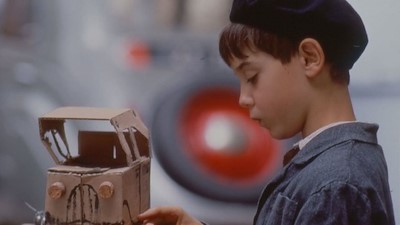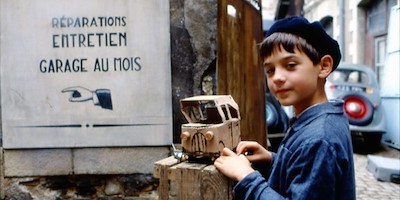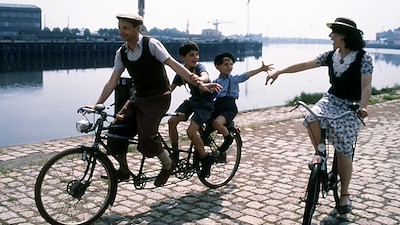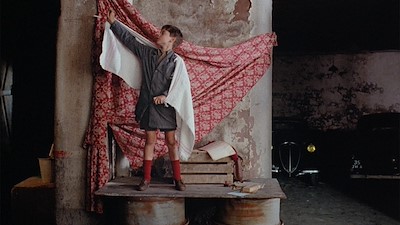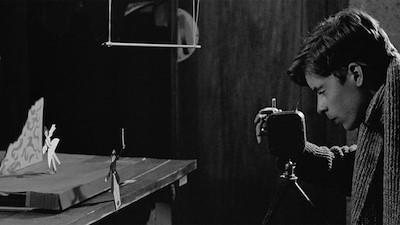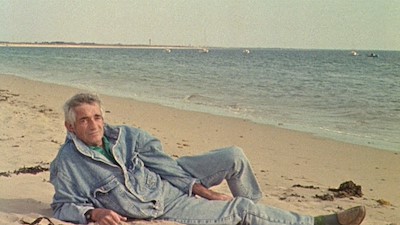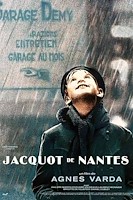Jacquot de Nantes
Agnès Varda, France, 1991o
Il était une fois un garçon, élevé dans un garage où tout le monde aimait chanter. C'était en 1939, il avait 8 ans, il aimait les marionnettes et les opérettes. Puis il a voulu faire du cinéma mais son père lui a fait étudier la mécanique. C'est de Jacques Demy qu'il s' agit et de ses souvenirs. C'est une enfance heureuse qui nous est contée, malgré les évènements de la guerre et de l'après-guerre.
An almost unbearably moving tribute to and portrait of Varda’s beloved husband Jacques Demy, made while he was dying from AIDS-related illnesses and finished only 10 days before his death, Jacquot de Nantes traces Demy’s life from childhood, through his artistic flourish, to the end of his life. Growing up in the coastal city of Nantes, Demy had his innocence spoiled by World War II (like many French youths of the period), but found solace in his father’s business as an auto mechanic and the puppet shows that would travel the country. Oscillating between recreations of Demy’s youth and peeks into his late existence as a dying man, Jacquot de Nantes is one of cinema’s most heart-rending tributes to love and life—an unforgettable film.
N.N.Drei Jungen spielen Jacquot im Alter von acht bis achtzehn. Sie leihen den Erinnerungen einen Körper, dessen äussere Hülle die Bilder von Demy am Strand bilden. Man muss sich das wie ineinandersteckende Schachteln vorstellen. In jeder grösseren sind alle kleineren enthalten. Der Film besteht darin, dass eine nach der anderen herausgezogen und ausgeleert wird. So stöbert Agnès Varda in den Erinnerungen, immer auf der Suche nach jener verlorenen Zeit, die sie nicht mit ihrem Mann verbracht hat. Was er erzählt hat, bringt sie auf die Bühne und erweckt es zum Leben. So entreisst sie seine Kindheit dem Tode.
Michael AlthenGalerie photoso
